
10 Reasons I Have Kefir Every Day
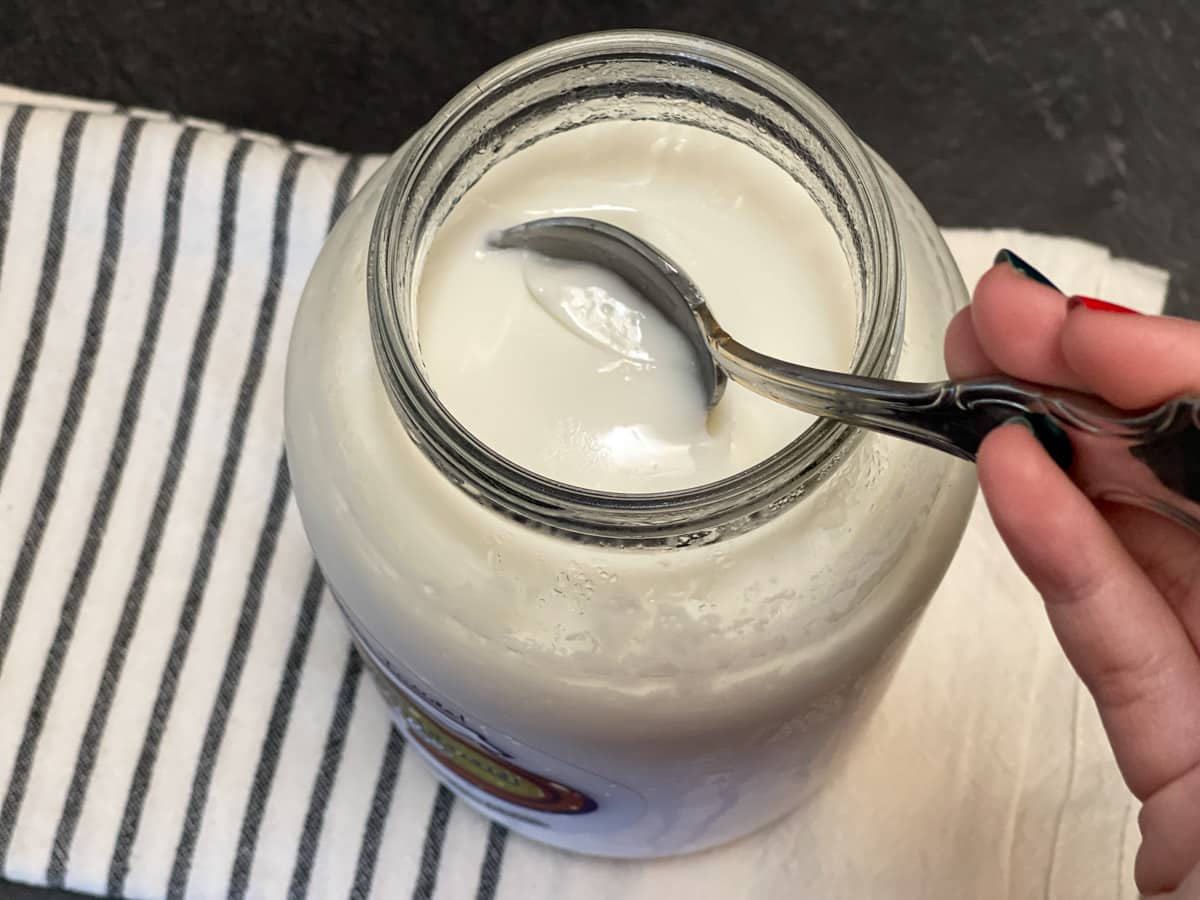 Lots of articles are popping up outlining reasons you should consume kefir, but few of the people writing the articles have actually consumed kefir every day for twenty-three years. This post is specifically talking about milk kefir and not water kefir. My reasons for drinking kefir are very personal and specific to me. But here is what I've noticed through the many years of drinking kefir: whatever your ailment, kefir seems to address the problem on an individual basis. When people write to me and say, "I no longer need my inhaler for asthma since drinking kefir," or "Kefir improved my kidney function. My liver was damaged from hepatitis C and kefir repaired it," I am constantly amazed. I was in awe for many years at the many things kefir could do; but as the years have continued, I am a believer that kefir is not just a food, but rather a healer. Kefir is a combination of microbes that, through the magic of fermentation, adds more vitamins and special properties to an ordinary substance, healing so many who consume it. So each day as I stand in my kitchen and make kefir for myself and my family, I am grateful. Grateful for what it has done for me and continues to do. Thankful that it's so easy and inexpensive and has helped so many individuals. It makes my cup runneth over . . . every day. I sure love my friend kefir.
Lots of articles are popping up outlining reasons you should consume kefir, but few of the people writing the articles have actually consumed kefir every day for twenty-three years. This post is specifically talking about milk kefir and not water kefir. My reasons for drinking kefir are very personal and specific to me. But here is what I've noticed through the many years of drinking kefir: whatever your ailment, kefir seems to address the problem on an individual basis. When people write to me and say, "I no longer need my inhaler for asthma since drinking kefir," or "Kefir improved my kidney function. My liver was damaged from hepatitis C and kefir repaired it," I am constantly amazed. I was in awe for many years at the many things kefir could do; but as the years have continued, I am a believer that kefir is not just a food, but rather a healer. Kefir is a combination of microbes that, through the magic of fermentation, adds more vitamins and special properties to an ordinary substance, healing so many who consume it. So each day as I stand in my kitchen and make kefir for myself and my family, I am grateful. Grateful for what it has done for me and continues to do. Thankful that it's so easy and inexpensive and has helped so many individuals. It makes my cup runneth over . . . every day. I sure love my friend kefir.
10 Reasons I Have Kefir Every Day
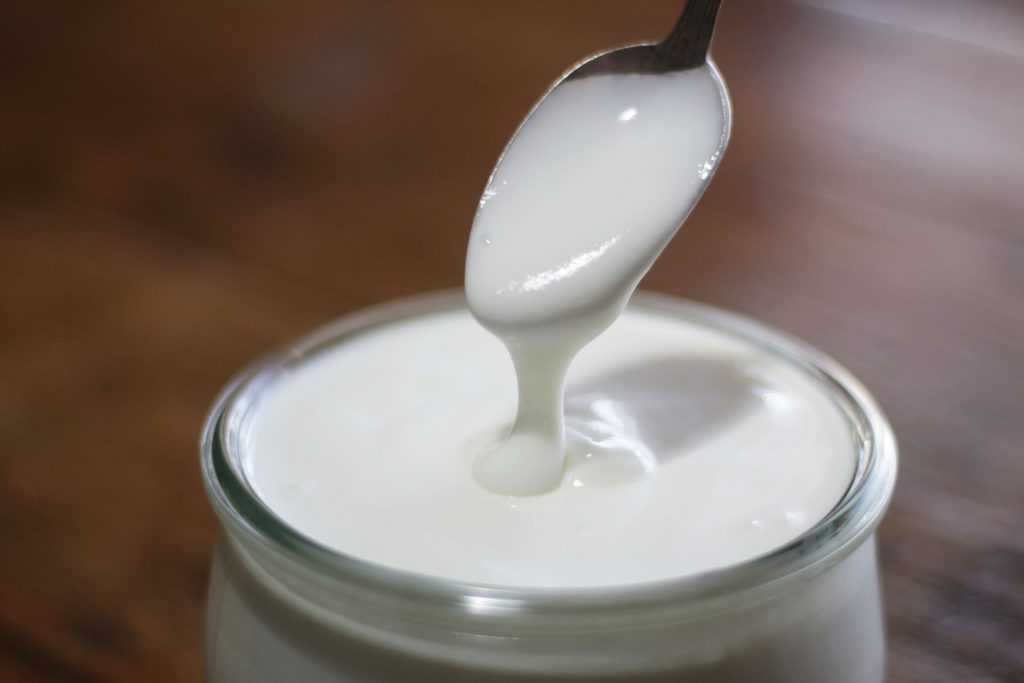
Kefir and Blood Pressure
This is the first thing kefir did for me so many years ago. It dropped my blood pressure when it was high and it made me stop and take notice. What was this drink that was having such an impact on me? And from that day to this, I have continued drinking kefir to keep my numbers normal and my body happy. Kefir was found to work on an enzyme in the stomach much like an ACE inhibitor drug will do, to lower blood pressure naturally in one out of three people.1 It also reduces inflammation throughout the body. And more and more studies are finding that probiotic-fermented milk has blood-pressure-lowering effects in pre-hypertensive and hypertensive people.2
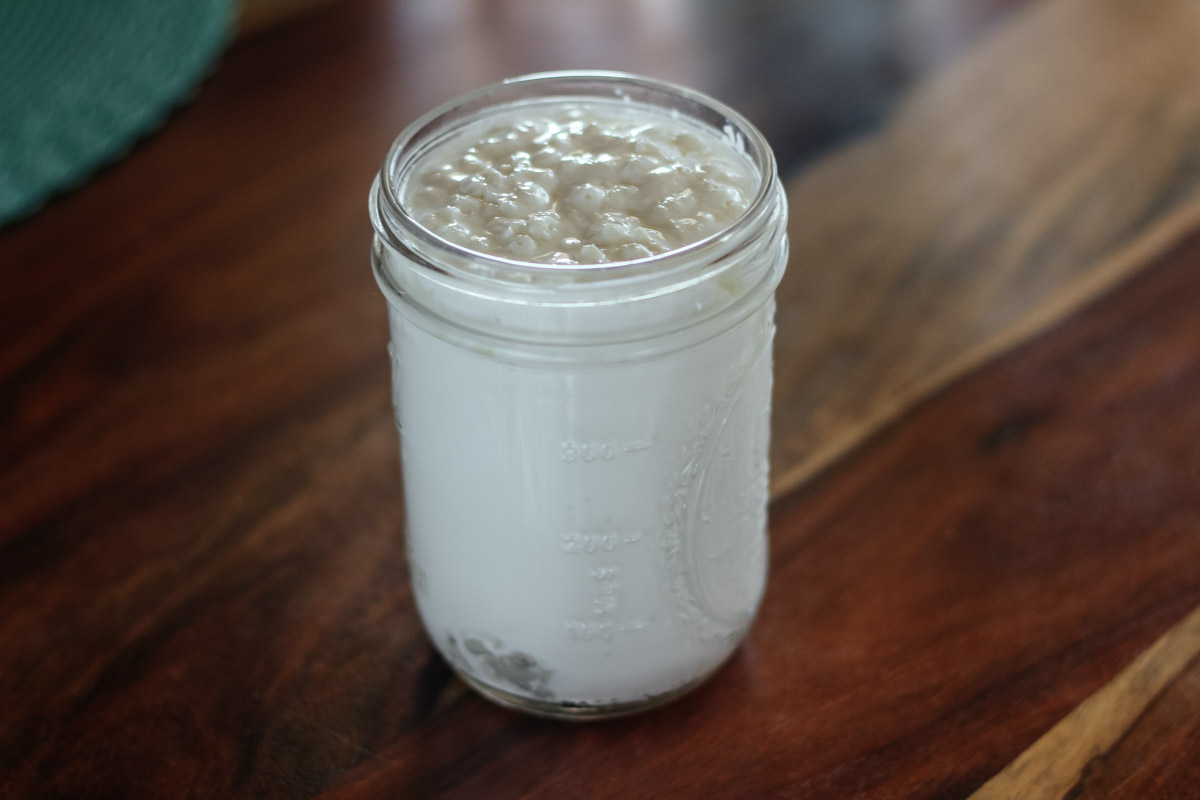
Kefir and Blood Sugar
The second thing that happened to me when I started drinking kefir years ago was the normalization of my high blood sugars, and I have been drinking it ever since. Many studies are confirming that altered gut flora are present in humans and animals with obesity, insulin resistance, diabetes, and hypertension. Growing research suggests that people who are obese, and resistant to insulin, have microbes in their gut that are different from the microbes of healthy people. There is evidence that feeding probiotics and prebiotics to those with diabetes-related obesity and metabolic disorders can dramatically reduce insulin resistance, restore glucose sensitivity, and lower blood pressure and weight by altering their gut flora and encouraging the right kind of microbes to thrive and grow.3,4
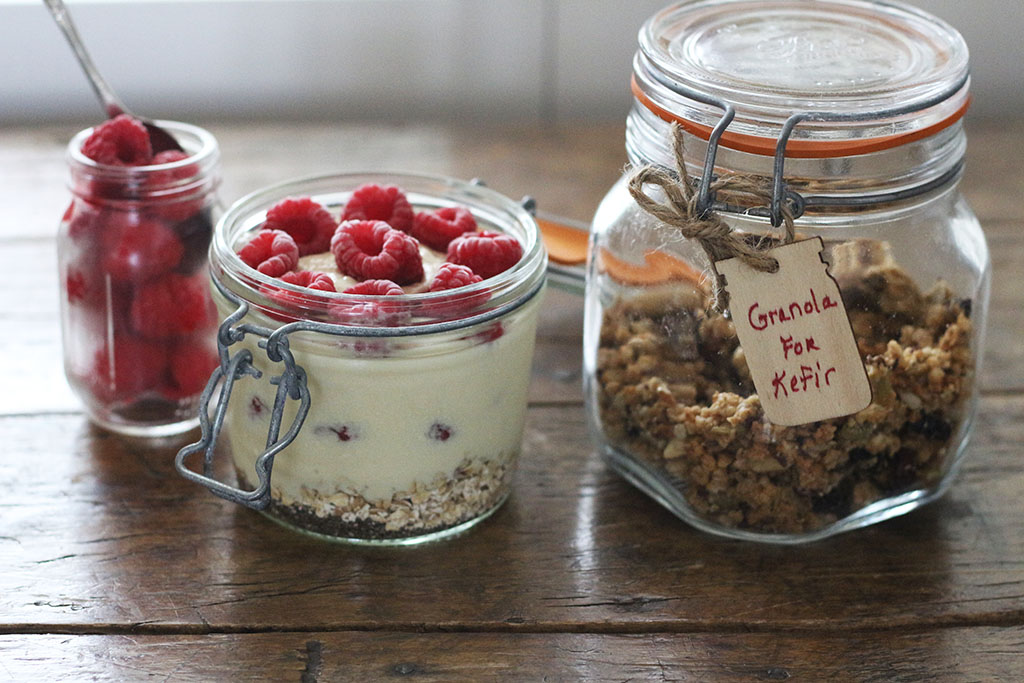
Kefir and Acid Reflux
The third thing I noticed came from my husband who had terrible acid reflux. Not only did it stop his acid reflux so he wouldn't have to take antacids every day, but it also normalized and restored balance to his gut. Many, many people have experienced the same thing. They will often share with me how they got off their prescription medications with kefir and how grateful they are that they found the remedy in a food and not a drug. People are unaware that many antibiotics destroy certain bacteria we need to keep acid reflux in check. It's becoming quite common, and more and more people are getting reflux due to this particular bacteria being destroyed. Martin J. Blaser, M.D., talks more about this in his book Missing Microbes.5 We don't realize how we affect the inner workings of so many functions in the body by destroying needed microbes with antibiotics. Kefir helps correct this.
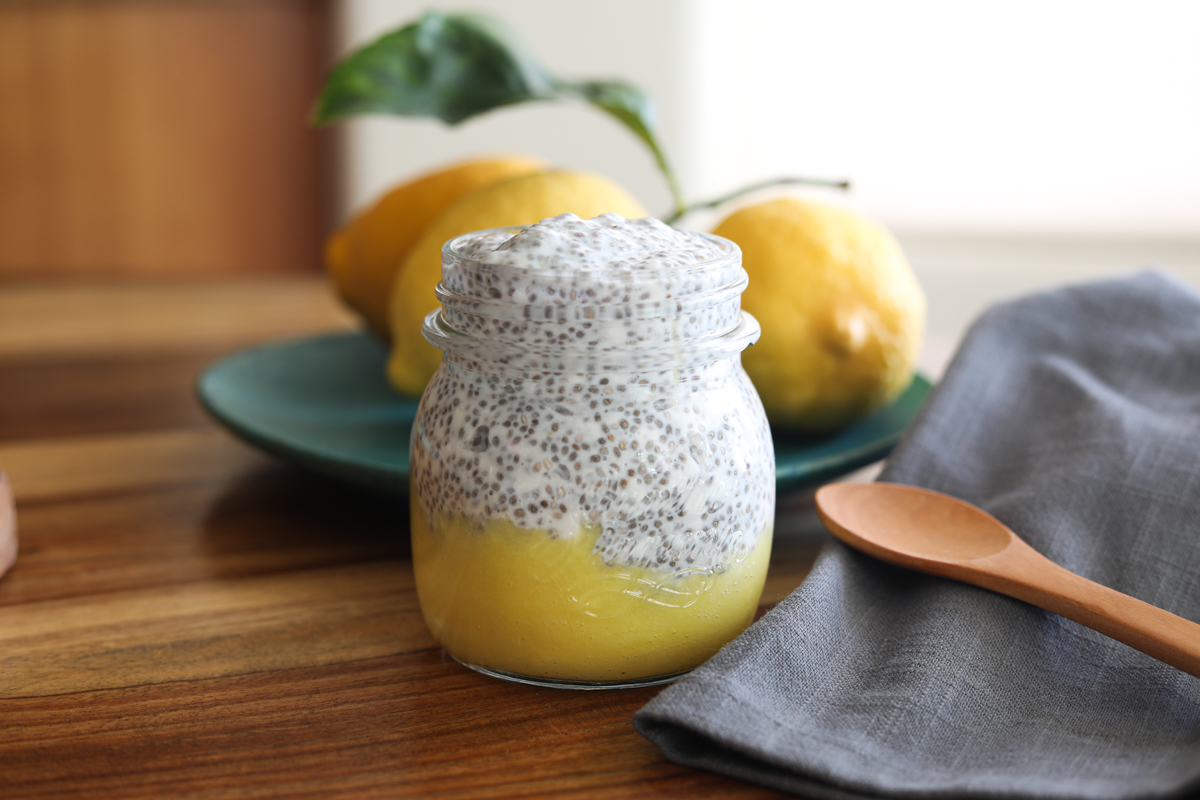
Kefir and Allergies
I've had seasonal allergies for over 40 years. But as long as I am careful with my diet and consume lots of kefir (at least two cups a day) and stay away from inflammatory foods, those allergies don't flare up. When you have hay fever, your immune system is overreacting to a substance it shouldn't overreact to. Our immune system must distinguish between "allies" that can be beneficial to our health and "enemies" that can have harmful effects. The trillions of bacteria that live in our gut help to determine this recognition. When it fails, an immune response occurs. Restoring beneficial bacteria strains to the gut allows the body to function as it should.6 A study was done with 60 hay fever sufferers who were given daily drinks containing Lactobacillus casei which is found in kefir. Those who received the probiotic drink saw changes in allergic inflammation in their nasal lining, as well as changes in their blood that are associated with immune responses. I have found many things influence seasonal allergies, and it has to do with what you shouldn't eat as well as what you should be adding to your diet. Staying away from inflammatory foods is crucial. Here is more on this subject. How I cured my seasonal allergies.
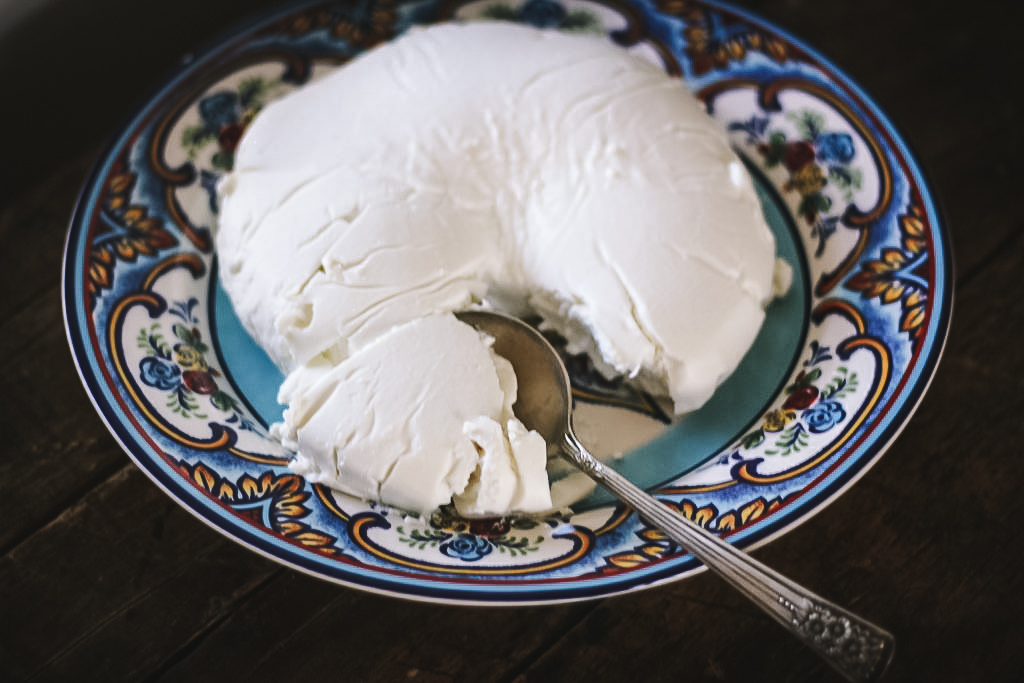
Kefir Detoxes and Maintains Balance
Kefir boosts the immune system, but it is also a very powerful detoxifier. With more than fifty good strains of microbes, it will colonize the body, remove pathogens, and re-establish the proper balance of strains of microbes throughout the body. This includes keeping the Candida yeast in its proper place. One of the fastest ways to get a yeast overgrowth is by taking an antibiotic. The connection between healthy gut flora and allergies was directly shown in a study by immunologist Gary Huffnagle and his colleagues at the University of Michigan. In this experiment, a group of mice was given antibiotics in an effort to disturb the natural bacteria levels in their systems. After the bacteria were killed off, the scientists threw off the balance of the microbiome even more by feeding the mice the yeast Candida albicans. The resulting low bacteria - high yeast ratio approximates the conditions of having a yeast infection, which is a sure sign of a gut imbalance. This group of mice and a control group were then exposed to spores of the mold Aspergillus fumigatus and to egg white protein — two substances known to cause allergic reactions. The mice in the control group, whose gut bacteria were undisturbed, had much milder reactions to the allergens than those that had been treated with antibiotics which experienced severe reactions. Having lots of kefir will help you keep everything in its proper place. Kefir also helps with liver function by assisting the liver in detoxification.6

Kefir and Cholesterol
I had several close friends tell me that their cholesterol started improving when they began to eat fermented foods. In fact, their good cholesterol rose quite significantly and they were really surprised how good their numbers were. It's a very interesting thing to understand how all of this works.8,9 Beneficial microbes bring down cholesterol levels as they grow in the intestinal tract. They then consume some of the cholesterol that is present, incorporating it into their own cells. This means the cholesterol becomes unavailable for absorption from the intestine into the bloodstream, naturally lowering total cholesterol.
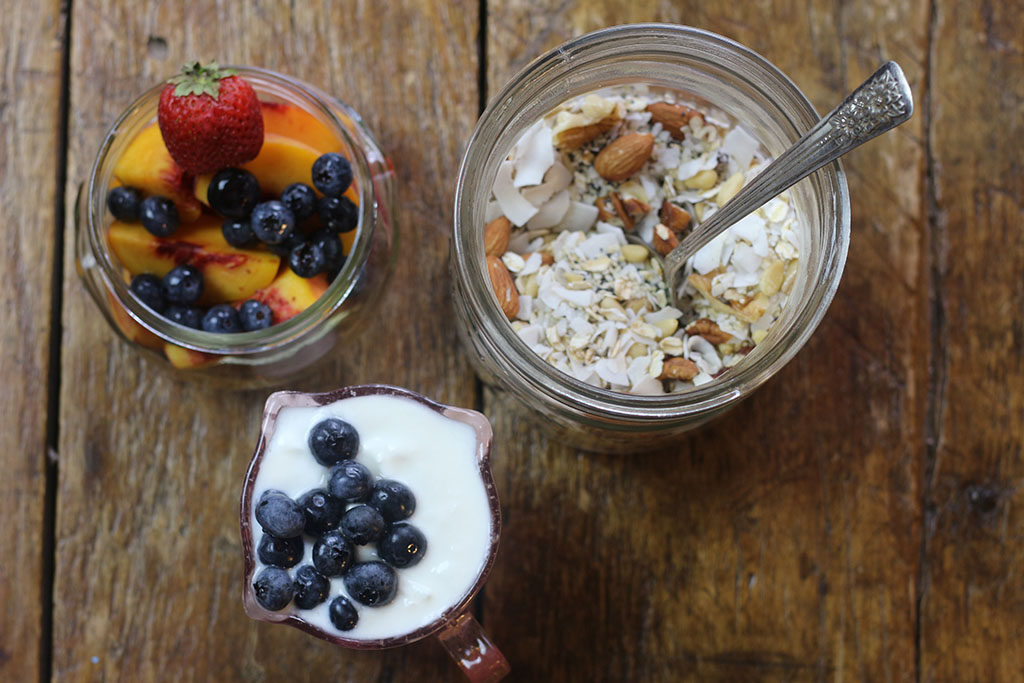
Kefir's Calming Effect on the Central Nervous System
This is another one of the miracles that I have found kefir performs for me: when I'm super stressed, two to three cups of kefir, spread throughout the day, will calm me down and chill me out. Kefir contains many vitamins, minerals, and enzymes - calcium, phosphorus, magnesium, vitamins B1, B2, B3, B6, B12, folic acid, vitamin K, vitamin A, and vitamin D. Two cups of kefir will contain all the B12 you need in a day. Kefir has lots of amino acids. Tryptophan is one of the essential amino acids abundant in kefir, and is known for its relaxing effect on the nervous system.10 These complete proteins in kefir are partially digested and therefore more easily utilized by the body. Because kefir also has an abundance of calcium and magnesium, and also has important minerals for a healthy nervous system, kefir can have a particularly calming effect on the nerves. I can testify to that!
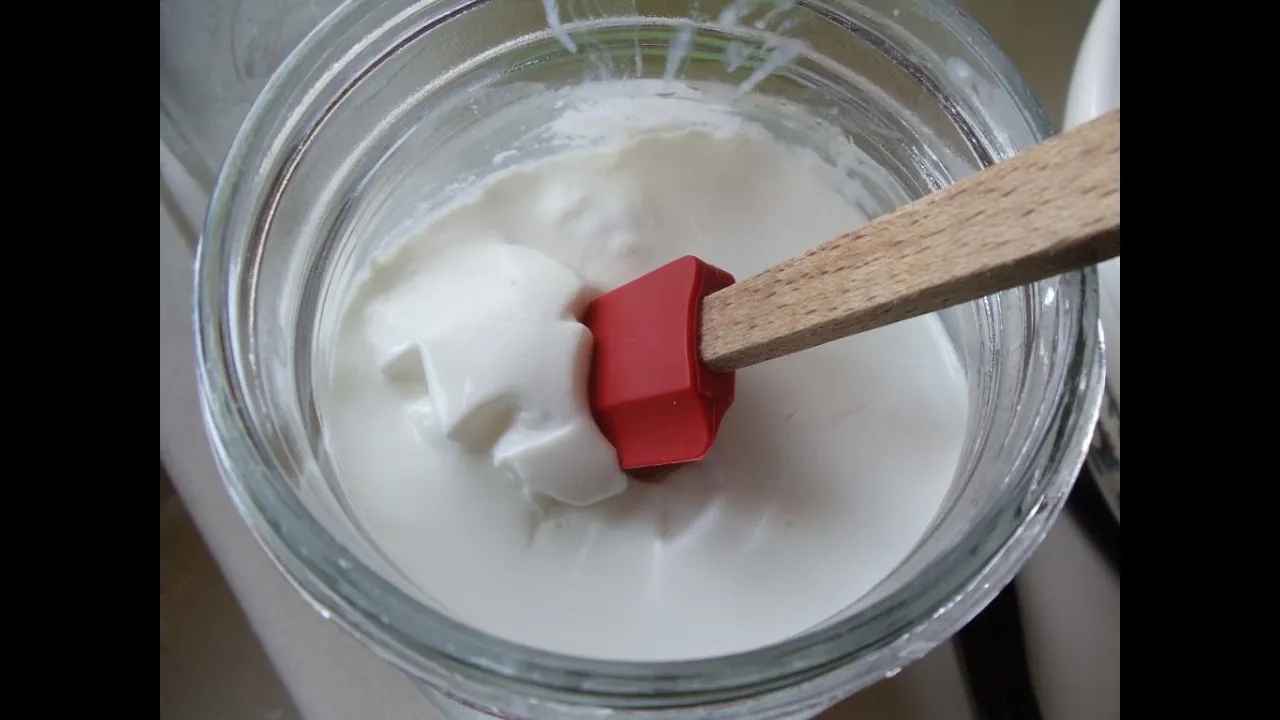
Kefir and Cardiovascular Health
Drinking kefir has been linked to many improvements in cardiovascular health. The probiotics in kefir, such as Lactobacillus kefiri, have been shown to help lower blood pressure and cholesterol levels, both of which are key factors in cardiovascular health. The bioactive peptides produced during kefir fermentation have antihypertensive properties, helping to relax blood vessels and improve circulation. Additionally, kefir's anti-inflammatory effects may reduce the risk of atherosclerosis, a condition characterized by the buildup of plaque in the arteries. [11,12,13]

Gut Health and Immune Function
Kefir is rich in probiotics, particularly strains like Lactobacillus kefiranofaciens and Lactococcus lactis, Lb. casei subsp. rhamnosus, Lb. paracasei, Lb. fermentum, and so many more. It also has many good yeasts that play a crucial role in maintaining gut health. These probiotics help modulate the gut microbiota, enhancing digestive health and potentially reducing the risk of gastrointestinal disorders. Additionally, kefir's unique combination of probiotics and bioactive compounds has been shown to support immune function, offering protection against various infections and inflammatory conditions.
Kefir is a wonderful ally when it comes to supporting tissue repair and recovery after an injury or surgery. Its rich nutrient profile, packed with high levels of protein, vitamins, and minerals, provides your body with the essential building blocks it needs for healing. The anti-inflammatory properties in kefir also work to reduce swelling, helping to speed up the recovery process naturally. It’s a soothing and nourishing addition to your healing journey, offering comfort from the inside out.
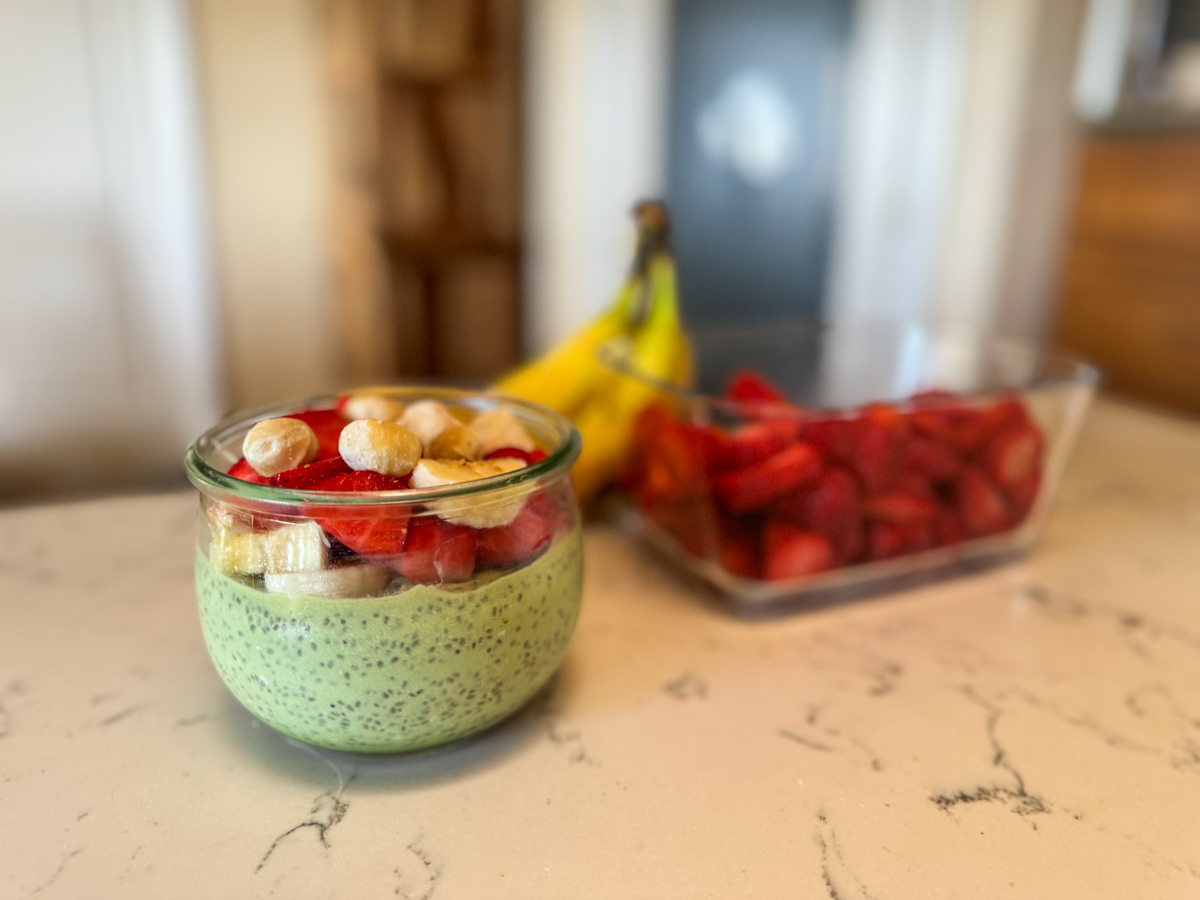
Kefir and Respiratory Health
Kefir has long been used for its ability to support respiratory health, especially during the cold and flu season. I have seen this personally after respiratory infections, and I have received many emails from idividuals who have gotten off of their asthma inhalers. It was one of the first things I noticed about kefir. It works powerfully on the lungs. The probiotics in kefir work to balance the immune system, which can help reduce the severity and frequency of respiratory infections.
The connection between gut and lung health, known as the gut-lung axis, suggests that improving your gut microbiome through regular kefir consumption can also benefit your respiratory system. It's a simple and effective way to enhance your overall wellness. [14]
These are just a few of the many things kefir has done for me. I'm not just spouting facts and studies, I've lived these experiences and love to tell others about them. When you make kefir, just know that it is so much more than you can imagine. You will find billions of microbes in a glass of kefir that are just waiting to help you. They can only do this if you give them the A-okay. Now, don't you think it's time?
![]() Would you like to see all the helpers in kefir? It's pretty impressive.
Would you like to see all the helpers in kefir? It's pretty impressive.
Bacteria in Milk Kefir:
Listen To My Podcast
Many articles are popping up about reasons you should consume kefir, but few of the people writing the articles have consumed kefir every day for twenty-three years. This post specifically talks about milk kefir and not water kefir. My reasons for drinking kefir are very personal and specific to me. But here is what I've noticed through the many years of drinking kefir: whatever your ailment, kefir seems to address the problem on an individual basis. Tune in to learn more.
References:
-
- https://www.ncbi.nlm.nih.gov/pmc/articles/PMC6337326/Y. Hata et al., “A Placebo-Controlled Study of the Effect of Sour Milk on Blood Pressure in Hypertensive Subjects,” American Journal of Clinical Nutrition 64, no. 5 (November 1996): 767–71: ajcn.nutrition.org/content/64/5/767.full.pdf
- J.Y. Dong et al., “Effect of Probiotic Fermented Milk on Blood Pressure: A Meta-analysis of Randomised Controlled Trials,” British Journal of Nutrition 110, no. 7 (October 2013): 1188-1194: abstract at www.ncbi.nlm.nih.gov/pubmed/23823502
- A. Everard et al., “Cross-Talk Between Akkermansia muciniphila and Intestinal Epithelium Controls Diet-Induced Obesity,” Proceedings of the National Academy of Sciences 110, no. 22 (May 28, 2013): 9066–71: www.pnas.org/content/110/22/9066.full
- https://www.cambridge.org/core/journals/nutrition-research-reviews/article/milk-kefir-nutritional-microbiological-and-health-benefits/1393DC2B8E5F08B0BE7BD58F030D387B
- Missing Microbes: How the Overuse of Antibiotics Is Fueling Our Modern Plagues by Martin J. Blaser
- Oral Delivery of a Probiotic Induced Changes
- Rodrigues, K. L., Caputo, L. R. G., Carvalho, J. C. T., Evangelista, J., & Schneedorf, J. M. (2005). Antimicrobial and healing activity of kefir and kefiran extract. International journal of antimicrobial agents, 25(5), 404-408
- Medrano, M., Racedo, S. M., Rolny, I. S., Abraham, A. G., & Pérez, P. F. (2011). Oral administration of kefiran induces changes in the balance of immune cells in a murine model. Journal of agricultural and food chemistry, 59(10), 5299-5304
- Furuno, T., & Nakanishi, M. (2012). Kefiran Suppresses Antigen-Induced Mast Cell Activation. Biological and Pharmaceutical Bulletin, 35(2), 178-183
- The effect of kefir consumption on human immune system: a cytokine study
- https://www.sciencedirect.com/science/article/abs/pii/S0955286318310611?via%3Dihub
- https://www.ncbi.nlm.nih.gov/pmc/articles/PMC6687726/
- https://academic.oup.com/nutritionreviews/article/81/3/267/6652871?login=false
Are you on the list?
Sign up today and I'll send you my free Getting Started Guide!
Each week I'll send you updates, tips, recipes, and more! You might even be a winner of my weekly giveaway! (starter cultures, memberships, and more!)
Come be a part of my cultured food family!


